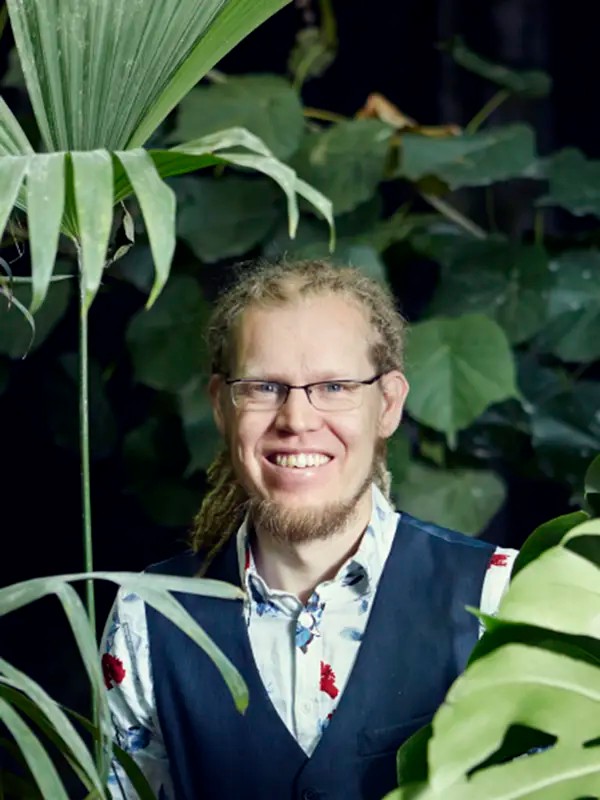Even Swedish consumption contributes to the loss of rainforest – and nowadays coffee has overtaken beef as the product affecting deforestation the most. This is shown in a new report from the WWF in which Chalmers has participated, which for the first time gives a detailed picture of the drivers behind deforestation in the Amazon and its connections to local and global trade.
"Accurate assessment of the local and regional drivers of deforestation across the Amazon is the foundation for identifying and managing the impact of global supply chains—supporting not only accountability, but action that is targeted, efficient, and impactful," said Chandrakant Singh, researcher at Chalmers and lead author of the report.

The comprehensive report, the Amazon Footprint Report 2025, was released in connection with the climate meeting COP30, and is a collaboration between WWF, Chalmers and the Stockholm Environment Institute. Martin Persson, Professor at Chalmers and one of the authors of the report, thinks this broadens the picture of the threat to the rainforest.
"This is the most detailed study of what drives Amazon deforestation to date. Partly because it geographically drills down to very local level – in many cases down to municipal level – and partly because it includes all agricultural production in the region and the connection both to local and global consumption", he says.
In the study the researchers have used satellite images of land-use in the Amazon, and combined this with data about agricultural production and trade flows. The report shows that primarily domestic markets, but also international demand, drive deforestation. Expansion of livestock farming contributes most to the devastation, followed by soy cultivation.
Sweden stands out: Coffee has the greatest impact on deforestation
For Sweden the numbers however look different. Here, consumption of coffee has for several years been estimated to have a higher impact on Amazon deforestation than consumption of soy. According to the latest measurement, from 2022, coffee has now also overtaken beef in the table, and is thus the imported product in the country that affects deforestation the most.
In 2022 the consumption of coffee in Sweden contributed to the clearing of 331 hectares of rainforest in the Amazon – an area corresponding to approximately 463 football fields. The corresponding figure for beef is 236 hectares.
"Globally there has been a lot of focus on the impact of soy production and livestock farming on deforestation, so coffee consumption perhaps has flown a bit under the radar", says Martin Persson.
At the same time he emphasizes that the study does not include specific data about the individual products imported, but is based on an average calculation of coffee’s impact.
"That means it is not visible if, for example, we in Sweden were to consume a large proportion of sustainability-certified coffee, which does not contribute to forest destruction in the same way", he says.
Today there is no labelling that specifically indicates if a product is deforestation-free. But for consumers who want to know where products in the store such as soy, coffee, beef or cocoa come from it becomes easier after 30 December 2025, notes Martin Persson. Then the EU regulation, the EU Deforestation Regulation (EUDR), enters into force. It is intended to counter trade in goods that contribute to the world’s deforestation and forest degradation, by placing demands on producers and importers to trace and document that products do not cause deforestation.

Support for actors who want to counter the clearing
Between 2018 and 2022 the Amazon lost a total of 8.6 million hectares of rainforest – an area larger than Austria. The new study shows that there are large geographical differences when it comes to which agricultural production affects the clearing. The report also points out that there is a risk that the importance of cultivated crops for Amazon deforestation is underestimated.
"It is known that expansion of pasture for meat production is an important factor behind deforestation especially in Brazil, but the picture is significantly more complex than that. The increased production and demand of crops such as soy, palm oil, cocoa and coffee is an important driver in other areas, especially Bolivia, Ecuador and Peru", he says.
He hopes that the report will help actors who want to counter the clearing, and make it clear that the same solution does not work for all.
"In some regions it is important to focus on international trade flows; in others it may be about supporting local producers of maize or rice so that they can increase yields without further deforestation. We also hope that companies that trade goods such as coffee, soy or cocoa from the region get a greater understanding of the risks associated with deforestation", he says.
More about the report
Amazon Footprint Report 2025 was released in November 2025 during the climate meeting COP30, and maps the drivers behind deforestation in the Amazon linked to agricultural production. The report has been drawn up by WWF in collaboration with Chalmers University of Technology and the Trase initiative at Stockholm Environment Institute (SEI).
The authors of the report are Martin Persson and Chandrakant Singh from Chalmers University of Technology, as well as Chris West, Simon Croft and Jo Cook from Stockholm Environment Institute, University of York, UK, and Pablo Pacheco, WWF.
Image at top of page: Pexels | Tom Fisk
Contacts:
- Professor, Physical Resource Theory, Space, Earth and Environment
- Doctor, Physical Resource Theory, Space, Earth and Environment

